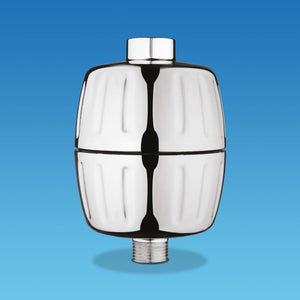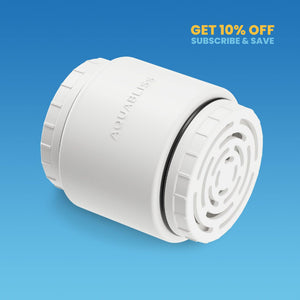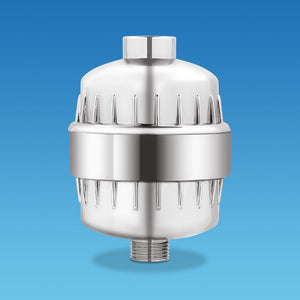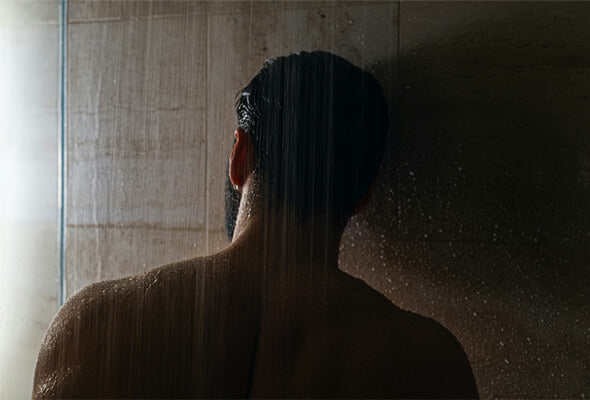Hot showers can be effective for headaches, specifically tension or stress-related headaches. Warm water soothes and relaxes the muscles around the head, often reducing symptoms. Do you suffer from headaches?
Continue reading below to learn more about the relationship between hot showers and this condition, including whether heat is the best option for you, and alternative treatments you can try, plus when you might want to consider a hot or cold shower for headache relief.
How Does Heat Affect Headaches?
Heat affects headaches through several physiological pathways (which is one of the reasons hot baths and saunas have been so popular historically). Warmth relaxes muscles and improves circulation, encouraging blood to flow to the surface (the body’s way of releasing excess heat).
These mechanisms combine to relieve tension. People feel more relaxed and calmer when pleasantly warm than cold. However, while heat could benefit some headache-prone people, it could be worse for others.
For example, while hot showers are effective for tension headaches, they may worsen migraine triggers. Patients with the latter sometimes have thermal allodynia, which is a condition where heat makes pain signals and nausea worse, not better.
Finally, blood pressure and heart health should be considered before a hot shower. Warm water can raise blood pressure and heart rate, which could be dangerous in sensitive individuals.
Can a Hot Shower Alleviate a Headache?

Overall, most people find that hot showers can alleviate their headaches. These showers relax tight muscles in the neck and shoulders (which can be reservoirs for tension, causing less pain to be referred to the head).
Furthermore, the steam effects of hot showers can open the nasal passages and sinuses, which is beneficial for sinus headaches (where the small air sacs behind the face become inflamed or blocked).
The moist air loosens gunky mucus and sometimes relieves sinus pressure, a significant cause of headache pain for many people. Hot showers also boost blood flow and circulation. Warm water reduces the body’s propensity to hold blood in the core, allowing it to go to peripheral areas, including parts of the head, fostering relaxation.
Ultimately, hot showers aren’t a cure-all for headaches. Those caused by migraines or cancers may get worse. However, they are simple tools you can try to see if they provide you with relief.
Is a Hot Shower the Best Option for All Types of Headaches?
As noted above, not all headaches are the same. Their underlying mechanisms can be quite different. For example, muscle stress is the primary cause of most tension headaches. Muscles tighten up around the cranium, leading to headache-like symptoms. Sinus headaches are different again.
Blockages or inflammation in the sinus tissue causes these. Therefore, think carefully about whether you take a hot shower based on the type you think you have.
Here’s a breakdown:
- Tension – Use hot showers to relax tense muscles, reduce stress, and improve blood flow. You should see improvements within 10 to 15 minutes, especially when directing warm water to the neck, shoulders, and upper back.
- Sinus – Use hot showers to loosen mucus in the nasal passages and act as a natural decongestant. For maximum effectiveness, ensure you allow plenty of steam to form and give enough time for the decongesting water vapor to have an effect.
- Migraine – Don’t use hot showers and follow standard migraine management advice. Hot showers may sometimes worsen migraines or fail to improve them over baseline.
- Heat-sensitive headaches – Do not use hot showers and focus on cooling the affected area with an ice pack or a cold compress.
Other Benefits of Taking a Hot Shower When You Have a Headache
Taking a shower when you have a headache may offer significant benefits. However, showers can also help you overall in other ways:
Relaxation and Stress Reduction
For example, taking a shower has proven and documented stress reduction effects. Hot water can calm you down and make you feel less tense (a key headache trigger) after a long day.
Exposing your body to hot water often makes you feel more joyful and relaxed. That’s because hot showers act on multiple body systems, reducing tension and giving you a lighter outlook.
Combining a warm shower with mindful breathing or aromatherapy can enhance these results further. Belly breathing exercises and adding essential oils to your diffuser can be highly effective and change your mood in minutes.
Improved Sleep After a Hot Shower
You may also find that taking a hot shower at night helps you sleep better. As the water comes into contact with your body, it raises its temperature briefly. Then afterward, your body cools down more post-shower, promoting sleepiness.
Furthermore, tension and insomnia-related headaches become less likely when you get more sleep. If you can get seven to eight hours at night, you are often ready to face the day when it finally arrives the following morning.
Can Shower Filters Enhance the Benefits of a Hot Shower?

By this point, you may be wondering whether there is anything you can do to enhance the benefits of hot showers (especially if you have tension or sinus headaches). Well, it turns out that there is: shower filters.
Filters remove multiple impurities from your water, including:
- Chlorine
- Heavy metals
- Minerals
- Other pollutants
Reducing these is handy because they irritate sensitive skin and contribute to sinus issues. Reducing them makes it less likely that headaches will develop. Furthermore, cleaner, filtered water enhances comfort and relaxation during hot showers.
Again, this could help with headache relief if you are highly environmentally sensitive. You can find AquaBliss shower filters on our website to improve your shower experience.
Many products come with highly effective filters for reducing contaminants and additional elements on the other side that release clean, safe vitamins and minerals back into your water. Overall, water feels softer, helping hair and nails be less brittle.
Other Remedies to Consider Alongside a Hot Shower
Of course, a hot shower is just one approach to dealing with headaches. You can add numerous symptom-reducing remedies to complement your bathing regimen. For example, drinking more water daily can help with tension headaches.
Better hydration reduces the risk of muscle tension occurring. Stretching and gentle massage could also be effective. These reduce neck and shoulder pain, a significant source of referred discomfort in the head.
Stress management might work too, especially if you have a challenging job. Taking time to breathe deeply, meditate, and take your time can make the discomfort better. For sinus headaches, you need a different approach.
For these, focus on:
- Nasal irrigation or sprays. Saline solutions and bottles from brands like Neilmed can dislodge crusty mucus and clear the passageways, preparing them for treatment.
- Humidifiers. Adding other heat-related remedies, like humidity, to your environment can also help with sinus issues, encouraging them to open up and drain, removing headache-causing blockages.
- Warm compresses. Applying a warm compress to the cheeks or forehead can reduce sinus pressure and encourage them to behave normally.
- Antihistamines. You can further reduce allergies in the sinuses by applying antihistamines to fight inflammation.
For migraines, don’t immediately hop in the shower. Instead, go to a dark, quiet environment where you can close your eyes and relax.
Usually, a few minutes in the bedroom with the curtains closed, without any sensory triggers (lights or noise), alleviates migraine symptoms and starts to make you feel better.
You can also try hydrating with electrolyte drinks, avoiding too much caffeine, and possibly taking some magnesium (400mg to 600mg). Migraine medications are also available with medical approval.
Are Cold Showers Better for Headaches?
Generally speaking, cold showers are less effective than hot showers for tension and sinus headaches. However, cold water can reduce inflammation and act as a distraction from migraine pain.
Cold showers work by constricting blood vessels and reducing the activity of nerves in the neck and shoulders that lead to tension headache pain. However, they don’t relax muscles as effectively as hot showers, and can sometimes lead to muscle tightening and more core stress, making symptoms worse.
For migraines, however, the picture is more mixed. Cold showers can help migraine sufferers who are sensitive to heat and reduce the blood vessel widening that occurs when the temperature rises.
If you’re not sure which is best for you, experimenting with a hot or cold shower for headache relief can help you discover whether your body responds better to heat therapy or cooling methods.
Now You Know How Hot Showers Help Headaches
Having read this article, you should understand how and why hot showers are effective for tension and sinus headaches. The heat activates physiological pathways that lead to relaxation.
However, they may not work for all headache types (and may even trigger migraines). Heat is only effective if it restores balance. If you suffer from sinus or tension headaches, we suggest you experiment with hot showers today.
Adding one of our filters could enhance the experience even further, reducing discomfort and leaving you feeling refreshed. Finally, always consult a healthcare professional for persistent or severe headaches to ensure you receive the best treatment. Talk to us for more information.







